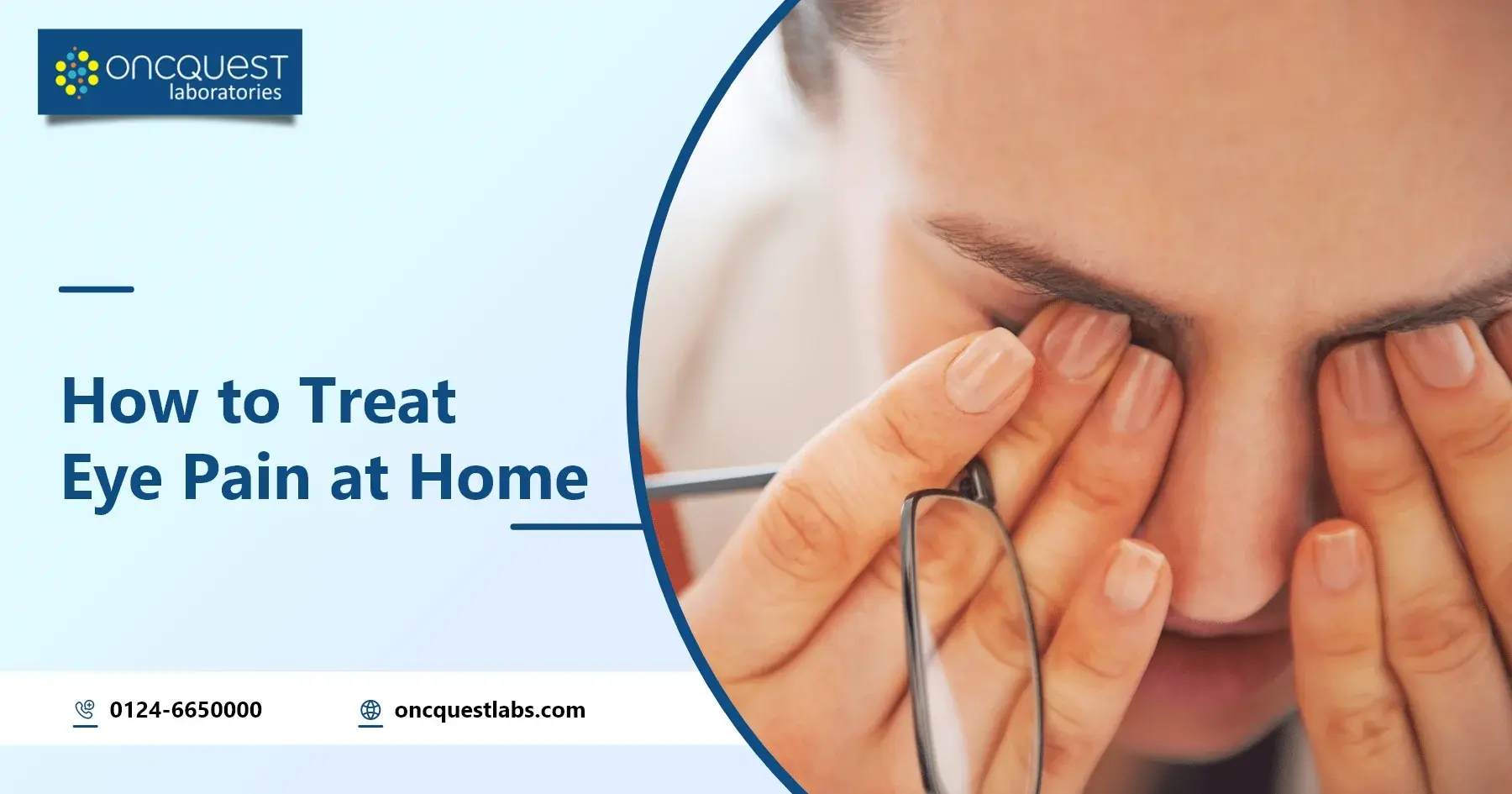Dealing with eye pain can be both uncomfortable and concerning. Whether it’s caused by prolonged screen time, eye strain, or environmental factors, finding relief at home is often the first step in addressing this common issue. In this blog, we’ll explore a variety of practical and easily accessible home remedies that can help soothe eye pain and discomfort. From simple lifestyle adjustments to natural remedies, these tips aim to provide you with effective ways to ease your eye pain and promote overall eye health. Remember, while these suggestions can offer relief, it’s crucial to consult with a healthcare professional if your eye pain persists or worsens.
Contents
What are Sore Eyes?
Sore eyes, also known as eye pain or ocular discomfort, refer to a condition where the eyes feel irritated, achy, or painful. This sensation can be caused by various factors, including prolonged screen time, eye strain, dryness, allergies, infections, or environmental irritants. Common symptoms of sore eyes may include redness, burning sensations, sensitivity to light, and blurred vision. It’s essential to identify and address the underlying cause of sore eyes to determine the most effective treatment. Seeking professional advice is recommended, especially if the discomfort persists or is accompanied by more severe symptoms.
Symptoms of Eye Pain
Eye pain can manifest through a range of symptoms, indicating various underlying causes. Common symptoms associated with eye pain include:
1. Redness: Bloodshot or red eyes can be a noticeable sign of eye irritation or inflammation.
2. Burning Sensation: A feeling of heat or burning in the eyes may suggest dryness or exposure to irritants.
3. Tearing: Excessive tearing can occur as a protective response to eye irritation or foreign particles.
4. Sensitivity to Light: Photophobia, or heightened sensitivity to light, is a common symptom accompanying eye pain.
5. Blurred Vision: Vision disturbances, such as blurriness or difficulty focusing, can be linked to eye strain or other ocular issues.
6. Foreign Body Sensation: Feeling like there’s something in your eye, even if nothing is there, may indicate irritation or dry eyes.
7. Headaches: Eye pain can sometimes be associated with headaches, especially if caused by prolonged screen time or eye strain.
8. Discharge: Any abnormal discharge from the eyes, such as pus or excessive tearing, may be a sign of infection or inflammation.
It’s crucial to pay attention to these symptoms and seek professional advice if they persist or worsen, as they can be indicative of various eye conditions that may require specific treatments.
Causes of Eye Pain
Eye pain can be triggered by a variety of factors, and understanding the underlying causes is crucial for effective treatment. Some common reasons for eye pain include:
1. Eye Strain: Prolonged use of digital devices, reading, or focusing on a specific task for an extended period can lead to eye strain and discomfort.
2. Dry Eyes: Insufficient tear production or poor tear quality can result in dry eyes, causing irritation and pain.
3. Allergies: Exposure to allergens like pollen, dust, or pet dander can lead to allergic reactions, causing redness, itching, and eye pain.
4. Infections: Bacterial or viral infections, such as conjunctivitis (pink eye), can cause pain, redness, and discharge.
5. Foreign Bodies: Particles like dust or debris entering the eye can cause irritation and pain until removed.
6. Corneal Abrasions: Scratches or injuries to the cornea, the eye’s outermost layer, can lead to significant pain and discomfort.
7. Glaucoma: Increased intraocular pressure in the eyes can cause severe pain and is a medical emergency requiring immediate attention.
8. Sinusitis: Inflammation of the sinuses can sometimes lead to referred pain, causing discomfort around the eyes.
9. Migraines: Some individuals may experience eye pain as a symptom of migraines, which can be accompanied by visual disturbances.
10. Contact Lens Issues: Incorrect use, overuse, or ill-fitting contact lenses can cause eye pain and discomfort.
It’s essential to identify the specific cause of eye pain to determine the appropriate treatment. If symptoms persist or worsen, seeking guidance from an eye care professional is advisable for a proper diagnosis and management.
Treatment for Eye Pain
The treatment for eye pain depends on the underlying cause. However, here are some general home remedies and self-care measures that may help alleviate mild to moderate eye pain:
1. Rest Your Eyes: Take breaks, especially during prolonged screen time or tasks requiring intense focus, to reduce eye strain.
2. Use Artificial Tears: Lubricating eye drops can help relieve dry eyes and provide soothing moisture.
3. Apply Warm Compresses: For eye pain due to inflammation or irritation, applying a warm compress to closed eyes can help relax the eye muscles and reduce discomfort.
4. Cold Compress for Inflammation: If the eye pain is associated with inflammation, a cold compress may help reduce swelling and soothe the eyes.
5. Over-the-Counter Pain Relievers: Non-prescription pain relievers, such as ibuprofen or acetaminophen, can be used following recommended guidelines for temporary relief.
6. Remove Contact Lenses: If you wear contact lenses, remove them if you suspect they might be contributing to the eye pain.
7. Avoid Allergens: If allergies are the cause, minimise exposure to allergens, and consider antihistamine eye drops.
8. Stay Hydrated: Proper hydration is essential for overall eye health. Drink enough water to prevent dry eyes.
9. Clean Your Eyes: If there’s a foreign body in the eye, flush it out gently with clean water. Avoid rubbing the eyes.
10. Adjust Lighting: Ensure proper lighting when reading or using electronic devices to reduce eye strain.
If your eye pain persists, worsens, or is accompanied by severe symptoms like vision changes or discharge, it’s crucial to seek professional medical advice promptly. An eye care professional can perform a thorough examination to determine the exact cause of the pain and recommend appropriate treatment.
Home Remedies for Eye Pain
Certainly! Here are some home remedies that may help alleviate eye pain:
1. Cold Compress: Applying a cold compress over closed eyes can reduce inflammation and provide relief from eye pain.
2. Warm Compress: A warm compress can help relax eye muscles and alleviate discomfort, especially if the pain is due to tension or eye strain.
3. Cucumber Slices: Placing chilled cucumber slices on closed eyes can have a soothing and refreshing effect, reducing eye irritation.
4. Tea Bags: Applying cold, damp tea bags (caffeine-free) over closed eyes may help reduce puffiness and soothe irritation.
5. Rose Water: Using a few drops of pure rose water as eye drops can help refresh and soothe the eyes.
6. Blinking Exercises: Perform regular blinking exercises to moisturise the eyes and reduce dryness.
7. Chamomile Tea Compress: Soaking a chamomile tea bag in warm water and placing it over closed eyes can have anti-inflammatory effects.
8. Aloe Vera Gel: Applying a small amount of pure aloe vera gel around the eyes may help soothe irritation and reduce redness.
9. Potato Slices: Chilled potato slices can be placed on closed eyes to reduce puffiness and alleviate eye strain.
10. Omega-3 Fatty Acids: Including foods rich in omega-3 fatty acids, like fish or flaxseed, in your diet can contribute to overall eye health.
Remember, these remedies are generally intended for mild cases of eye discomfort. If your symptoms persist, worsen, or are accompanied by other concerning signs, it’s crucial to consult with an eye care professional for a proper diagnosis and tailored treatment plan.
DIY for Eye Pain
DIY Eye Pain Relief Routine:
1. Warm Compress:
– Soak a clean cloth in warm water.
– Gently wring out excess water.
– Place the warm compress over closed eyes for 5-10 minutes to relax eye muscles.
2. Cold Compress:
– Use a cold compress or ice pack wrapped in a thin cloth.
– Apply the cold compress to closed eyes for 5-10 minutes to reduce inflammation.
3. Blinking Exercises:
– Sit comfortably and blink rapidly for 20 seconds.
– Close your eyes and let them rest for 20 seconds.
– Repeat this process several times to refresh your eyes.
4. Hydration:
– Drink plenty of water throughout the day to maintain eye moisture.
5. Artificial Tears:
– Use lubricating eye drops (artificial tears) to relieve dry eyes.
– Follow the recommended dosage on the product.
6. Cucumber Slices:
– Chill cucumber slices in the refrigerator.
– Place the slices on closed eyes for 10-15 minutes to reduce irritation.
7. Palming Technique:
– Rub your hands together to generate warmth.
– Cup your palms and place them gently over closed eyes without applying pressure.
– Relax and enjoy the darkness for a few minutes.
8. Aloe Vera Gel Massage:
– Use a small amount of pure aloe vera gel.
– Gently massage the gel around the eyes in a circular motion.
9. Tea Bags:
– Steep caffeine-free tea bags in hot water and let them cool.
– Place the cooled tea bags over closed eyes for 10-15 minutes.
10. Adjust Lighting:
– Ensure proper lighting when reading or using screens to reduce eye strain.
When to Contact Doctor
It’s important to contact a doctor if you experience any of the following concerning signs or if your eye pain persists:
1. Severe Pain: If you are experiencing intense or severe eye pain that doesn’t improve with home remedies.
2. Vision Changes: Any sudden changes in vision, such as blurriness, double vision, or difficulty focusing.
3. Eye Injury: If you have sustained an eye injury, even if it seems minor, seeking medical attention is crucial.
4. Persistent Redness: If your eyes remain red and irritated despite home treatments.
5. Light Sensitivity: Intense sensitivity to light (photophobia) may indicate an underlying issue and requires professional evaluation.
6. Discharge: Any abnormal discharge from the eyes, especially if it’s accompanied by pain, may suggest an infection.
7. Headache with Eye Pain: If you experience persistent headaches along with eye pain, it’s advisable to consult a healthcare professional.
8. Foreign Body Sensation: If you feel like there’s something in your eye and it doesn’t improve or if you suspect a foreign object is in your eye.
9. Diabetes or Chronic Conditions: If you have diabetes or other chronic conditions affecting your eyes, regular check-ups with an eye care professional are essential.
10. Medication Side Effects: If you suspect that your eye pain is a side effect of medication, consult your healthcare provider.
Remember, timely professional evaluation is crucial for identifying the underlying cause of eye pain and determining the appropriate treatment to prevent potential complications. If in doubt, it’s always best to seek medical advice.
Frequently asked Questions
Q1:How can I relieve eye pain at home?
A1:Ease eye pain at home by applying a warm compress to relax your eyes and using artificial tears for moisture. Practice blinking exercises, manage screen time, and ensure adequate lighting to reduce strain. These simple steps can provide relief and promote overall eye comfort.
Q2:What can I drink for eye pain?
A2:Stay hydrated with water for overall eye health. Consider consuming omega-3-rich foods like fish for added benefits, but consult a healthcare professional if eye pain persists.
Q3:How can I treat eye problems naturally?
A3:Treat eye problems naturally by incorporating a balanced diet with foods rich in vitamins A, C, and E. Practice eye exercises, stay hydrated, and use warm compresses for relaxation. However, consult with a healthcare professional for persistent or severe issues.
Q4:How does eye pain go away?
A4:Eye pain often subsides with rest, applying warm compresses for relaxation, and using lubricating eye drops for moisture. If the pain persists, identifying and addressing the underlying cause is crucial, requiring consultation with an eye care professional for appropriate treatment.
Q5:Why is my eye paining so much?
A5:Eye pain can result from various factors, such as eye strain, dryness, allergies, infections, or underlying conditions. Prolonged screen time, inadequate rest, or an incorrect prescription can contribute; consult an eye care professional for a thorough examination and tailored advice if the pain persists.





